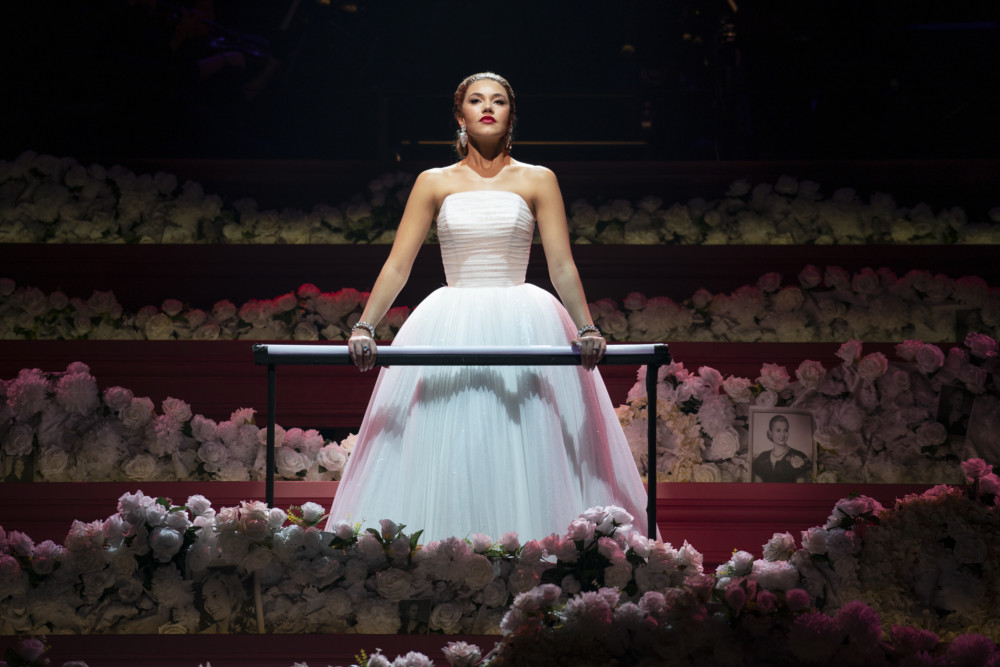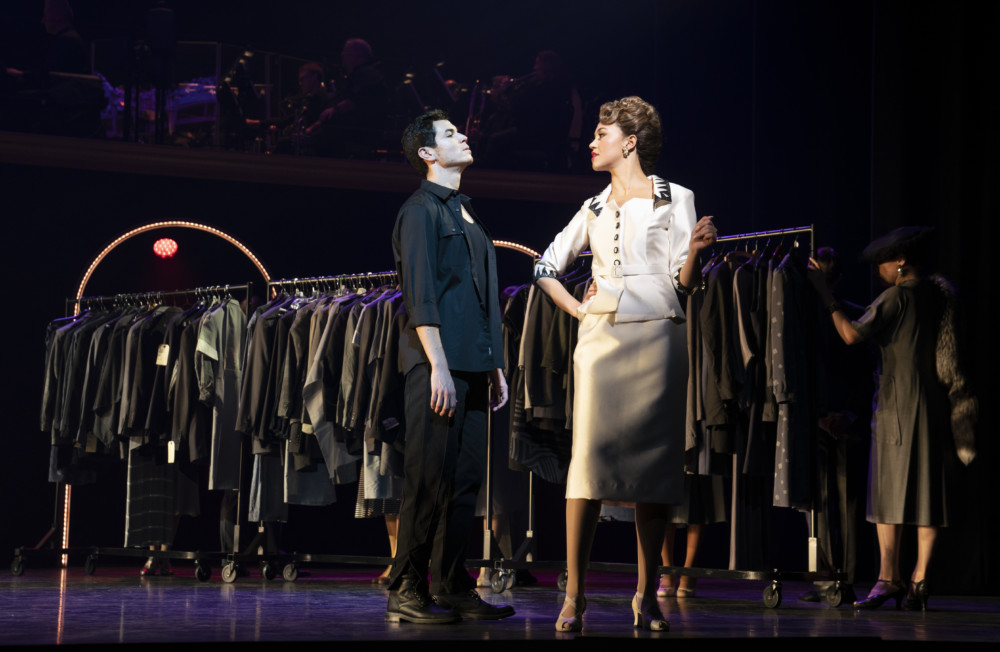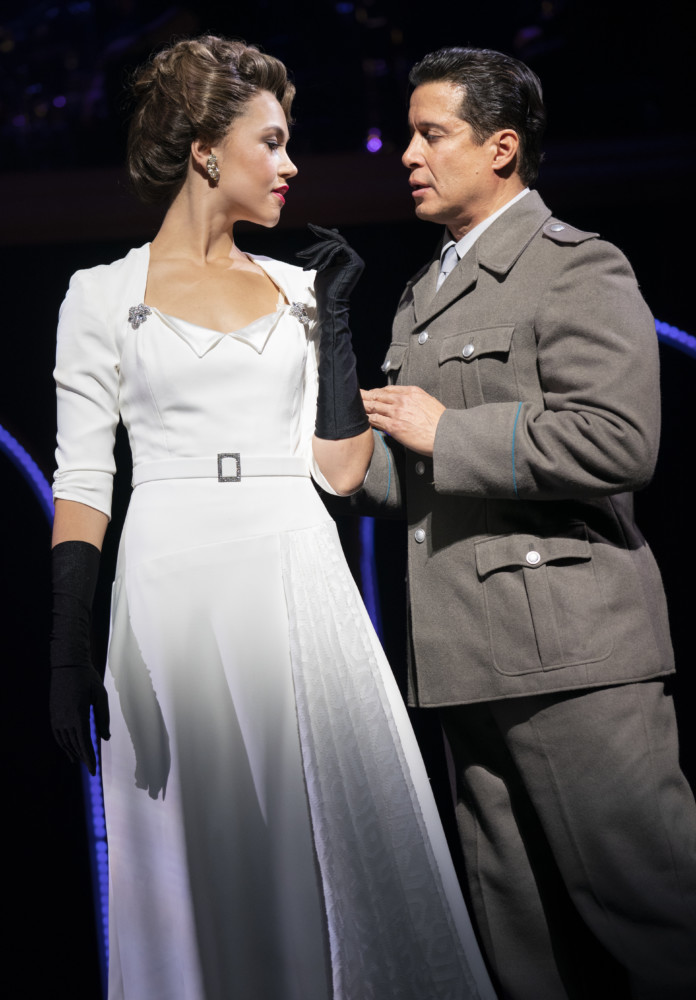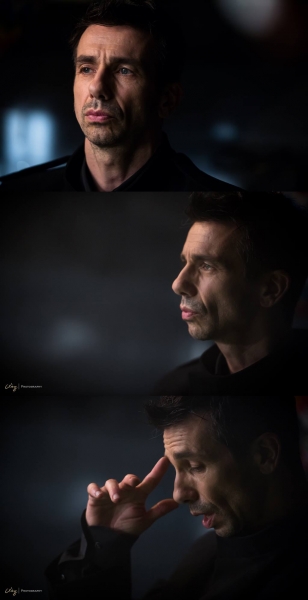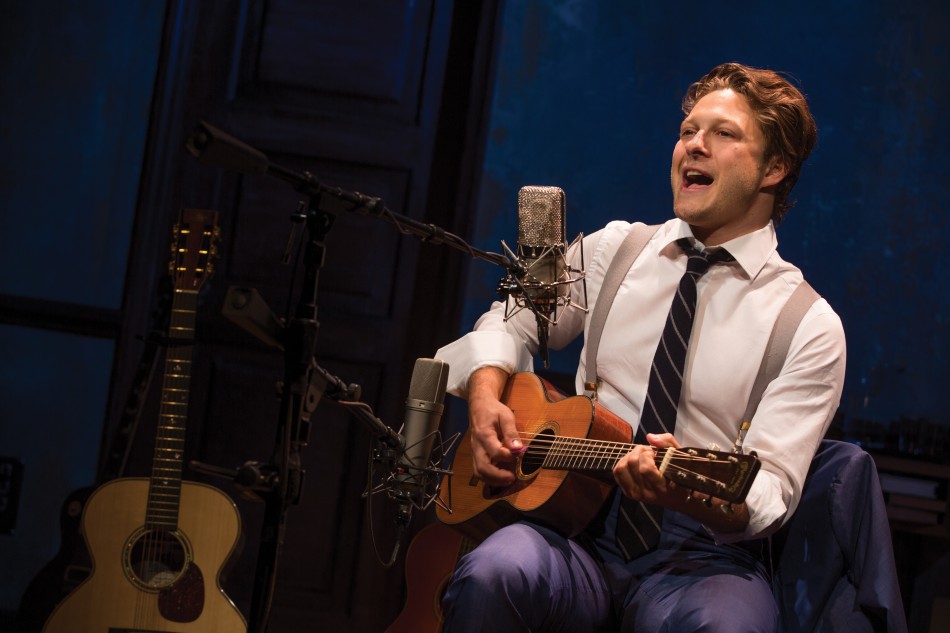By Brian Scott Lipton
“Solea! Solea! Solea!” I would not have been surprised if those words had been shouted in unison as Solea Pfeiffer took her bows after turning in her absolutely outstanding performance in the title role of New York City Center’s often-exhilarating production of Evita. Pfeiffer’s stunningly sung, perfectly enunciated and smartly acted portrayal of Argentina’s former first lady in Andrew Lloyd Webber and Tim Rice’s devilishly difficult work should effectively help the actress skip a rung or two (or three) on her recent ascent to musical theater superstardom.
Pfeiffer, whose vocalizing often seems shockingly effortless, may be the main attraction here, but she’s far from the only reason to take in Sammi Cannold’s deftly conceived production. Indeed, the show makes an instant impression with Jason Sherwood’s initial set, featuring rows of white-flowered funeral biers over which Eva Peron’s signature white dress hangs. The design is literally fit for a saint, although the show’s “book” (the musical is actually sung-through) is primarily determined to remind us how much its protagonist never deserved the title of “Santa Evita,” even if she occasionally helped her poor descamisados.
The job of educating us as to who Evita really was is put in the hands of our everyman narrator, technically named Che, and portrayed here by the handsome, strong-voiced and gently antagonistic Jason Gotay (the cast’s other true standout). He’s essentially our tour guide, showing us how a young Eva (played briefly by the excellent Argentinian-born teen star Maia Reficco, who then reemerges now and then as a spectral presence) used both her ambition and her sexual wiles — first to escape her downtrodden lower-class existence, and then eventually to latch onto Juan Peron (a smooth-voiced if rather unprepossessing Enrique Acevedo), who would eventually become Argentina’s rather dictatorial president –and her husband.
But even this Che must admit that perhaps Eva Duarte had little choice if she wanted to rise to the top. Cannold – with the considerable help of talented co-choreographers Emily Maltby and Valeria Solomonoff – has subtly emphasized how powerless women were in 1940s Argentina, how Eva was constantly dismissed by Peron’s men, and how she was looked down upon by both genders for her class status and her work as an actress.
Still, the show never becomes a full-fledged apologia; there’s no question that Eva was a power-hungry woman, interested in style as much as substance, and a master manipulator, a point made even clearer by the addition of “You Must Love Me,” the Oscar-winning ballad that serves as Eva’s final, desperate plea to her so-called people.
Still, you must love Pfeiffer, and not just because her rendition of this song is miles better than Madonna’s. She makes every tune here, from “Don’t Cry for Me, Argentina” to “Rainbow High” her own, which is no mean feat. In fact, I have little doubt she may soon become Broadway’s new first lady!
Photos: Joan Marcus
Evita continues at New York City Center (131 West 55th Street) through November 24. Call 212-581-1212 or visit www.nycitycenter.org for tickets and information.


